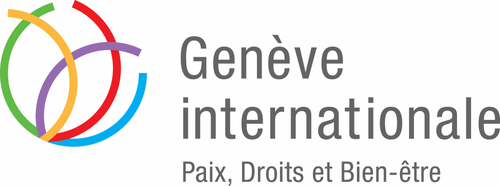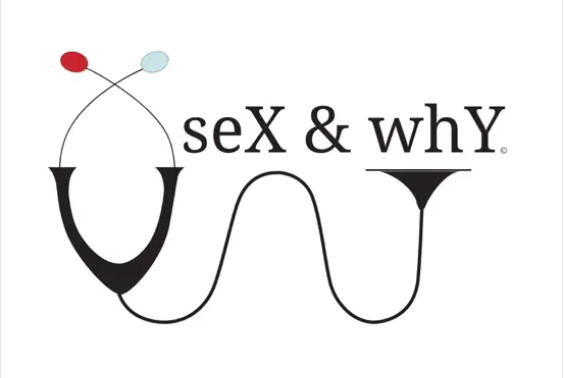
by Gendro | Feb 20, 2023 | Media
20 February 2023
Genève Internationale interviewed Dr. Shirin Heidari, founding president of GENDRO about her work. They asked her about GENDRO’s work, vision, and goals for the future.
Interview recording : Interview with Dr. Shirin Heidari by Genève International
by admin | Feb 2, 2023 | Events
2 February 2023 | Organisers: GENDRO and CIOMS
GENDRO and CIOMS jointly convened a meeting with key stakeholders, including the World Medical Association, Council of Europe, World Health Organization, representatives from research ethics committees, research institutions, and the pharmaceutical industry. The focus was on the crucial role of Research Ethics Committees (RECs) in addressing gender bias in research with human participants, using the SAGER guidelines as a valuable tool. CIOMS’ Secretary General Dr. Lembit Rägo initiated a dialogue on the role of RECs in strengthening sex and gender considerations in health research. GENDRO’s President, Dr. Shirin Heidari, underscored the concern of inadequate incorporation of sex and gender considerations in research and credited the success of the SAGER guidelines in raising awareness and improving reporting. Emphasizing the responsibility of every gatekeeper in the research ecosystem, including RECs, Dr. Heidari stressed the need for proper integration of sex and gender considerations throughout health research.
Dr. Abha Saxena, an independent bioethicist, presented findings from a scoping review conducted as part of GENDRO’s working group on gender and research ethics, revealing a lack of evidence on sufficient attention to sex and gender dimensions in the work of RECs.
The meeting facilitated consensus-building on the importance of a unified approach among all stakeholders in the research ecosystem to enhance the inclusion and meaningful consideration of sex and gender in research. The meeting concluded with proposed actions and a collaborative path forward, committed to by GENDRO and CIOMS.
Read the full report here.
by admin | May 26, 2022 | Events
26 May 2022 | Organisers: UNITE and GENDRO
UNITE, a global parliamentarian network for global health, hosted a webinar as a side event of the World Health Assembly “Gender, equity and human rights at the heart of the pandemic convention.”
Dr. Shirin Heidari, the founding president of GENDRO, spoke at this webinar on the impact of COVID-19 and pandemics on women’s rights and the need to include a gender perspective in the pandemic convention. Heidari highlighted GENDRO’s Consensus Statement which urgers Member States to the Pandemic Treaty to prioritize gender equality and human rights in a new international instrument for pandemic prevention, preparedness, and response. It emphasizes the need for gender-responsive research, inclusive policies, and measures to address gender-based violence and ensure access to sexual and reproductive health services.
This webinar facilitated a dialogue between parliamentarians and gender experts and global health professionals to exchange insights into how human rights and gender equality approaches can be incorporated into future pandemic policies.
Event website: https://gphcpanel.org/events/gender-equity-and-human-rights-at-the-heart-of-the-pandemic-convention/

by Gendro | Jan 12, 2022 | Podcast
12 January 2022
The podcast discusses the often overlooked issue of gender representation in medical research, particularly focusing on HIV trials and pharmacological studies. Dr. Heidari, founding president of GENDRO, and her team conducted a systematic review revealing a significant gender disparity in HIV research trials, where only 19% of participants were women despite them constituting more than 50% of HIV cases. The conversation delves into the history of gender inclusion mandates, such as the NIH Revitalization Act of 1993 and subsequent mandates for basic science research, highlighting the importance of including both sexes from the outset to avoid overlooking physiological sex-based differences that could emerge later in clinical trials.
Despite progress, adherence to guidelines ensuring gender inclusion remains inconsistent, and there is a gap between simply including men and women in studies and conducting appropriate gender-specific analyses. The podcast emphasizes the necessity of breaking down study results by gender and even calculating the optimal gender distribution in study designs to ensure robust findings. Additionally, the discussion touches on pharmacokinetics and pharmacodynamics, illustrating how drugs can affect male and female bodies differently, with examples like marijuana pharmacokinetics showing that women require less marijuana to experience the same effects, which could be obscured by higher dropout rates among women in previous studies. The conversation underscores the critical need for considering gender differences in medical research to ensure equitable and effective healthcare outcomes.
Listen to the podcast part1 and part2.
by Gendro | Nov 12, 2021 | Events
12 November 2021 | Organiser : Open Think Tank Network (OpenTTN)
In November 2021, a forum was held in Geneva that marked the official launch of OpenTTN. For three days, participants from all over Europe came together to discuss foreign policy issues in a participatory format with high-ranking experts and speakers.
The participants had the opportunity to celebrate the success of the joint publication of the OpenTTN on feminist foreign policy. The opening event was attended by: Marie-Claire Graf, YOUNGO Global Focal Point for the UNFCCC, Ambassador Thomas Greminger, head of the Geneva Center for Security Policy, Shirin Heidari, Founder of Gendro and Senior Consultant on WHO’s Gender, Equity and Human Rights Team, Tamara Mawhinney, Deputy Permanent Representative of Canada to the United Nations in Geneva, Maria Sokolova, TradeExperettes
During the subsequent sessions over the weekend, the participants not only thought about the internal structure of OpenTTN, but also analyzed the most important foreign policy trends and considered new projects for cooperation between the various think tanks.


